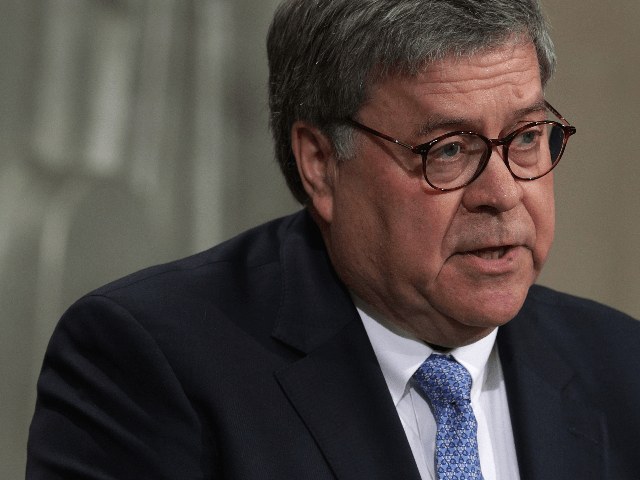Attorney General William Barr on Monday tore into “anti-law enforcement” district attorneys during a scheduled speech to the Fraternal Order of Police and warned that their limp-wristed approach to prosecutions will bring “more crime.”
“These anti-law enforcement D.A.s have tended to emerge in jurisdictions where the election is largely determined by the primary,” Barr told attendees of the group’s 64th National Biennial Conference in New Orleans. “Frequently, these candidates ambush an incumbent D.A. in the primary with misleading campaigns and large infusions of money from outside groups.”
Across the United States, some longtime prosecutors have been met by more reform-minded challengers, some of whom have vowed not to prosecute lower-level offenses, like drug possession and other misdemeanors. D.A.s such as D.A. Larry Krassner of Philadelphia have said they will no longer prosecute specific nonviolent crimes. Tiffany Caban, the failed Ocasio-Cortez-backed Democrat primary challenger for Queens district attorney, vowed to do the same if elected.
“Once in office, they have been announcing their refusal to enforce broad swathes of the criminal law. Most disturbing is that some are refusing to prosecute cases of resisting police. Some are refusing to prosecute various theft cases or drug cases, even where the suspect is involved in distribution,” the attorney general continued. “When they do deign to charge a criminal suspect, they are frequently seeking sentences that are pathetically lenient. These cities are headed back to the days of revolving door justice. The results will be predictable. More crime, more victims.”
In his prepared remarks, Barr also promised that the Department of Justice would propose legislation to expedite criminal cases against suspects charged in mass shootings and the killings of law enforcement officers, so they could face quick punishment, including the death penalty.
“Punishment must be swift and certain,” Barr said.
The nation’s chief legal officer also said there should be more of an appreciation for the work of law enforcement officers.
“The ‘thin blue line’ is getting thinner,” he added.
The AP contributed to this report.

COMMENTS
Please let us know if you're having issues with commenting.